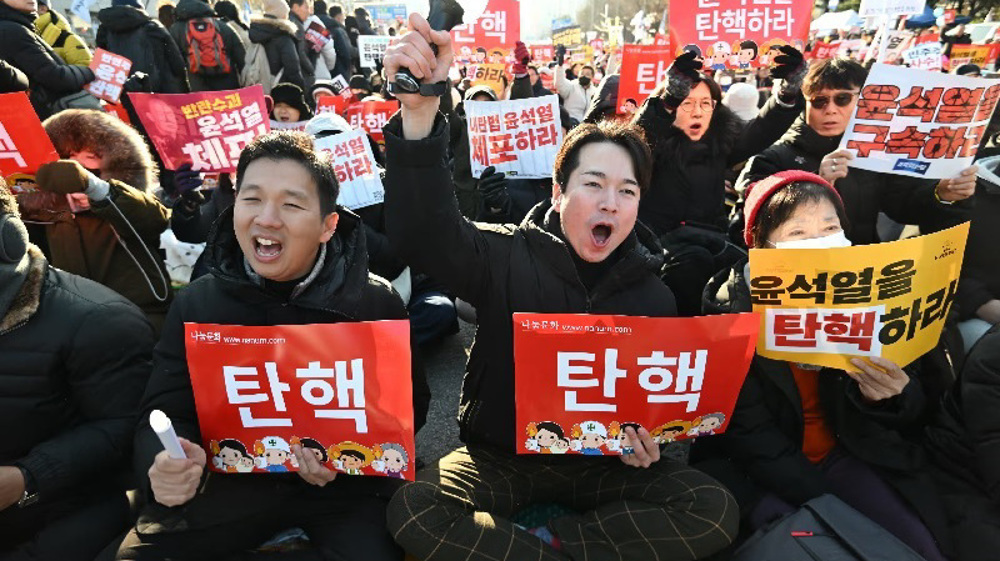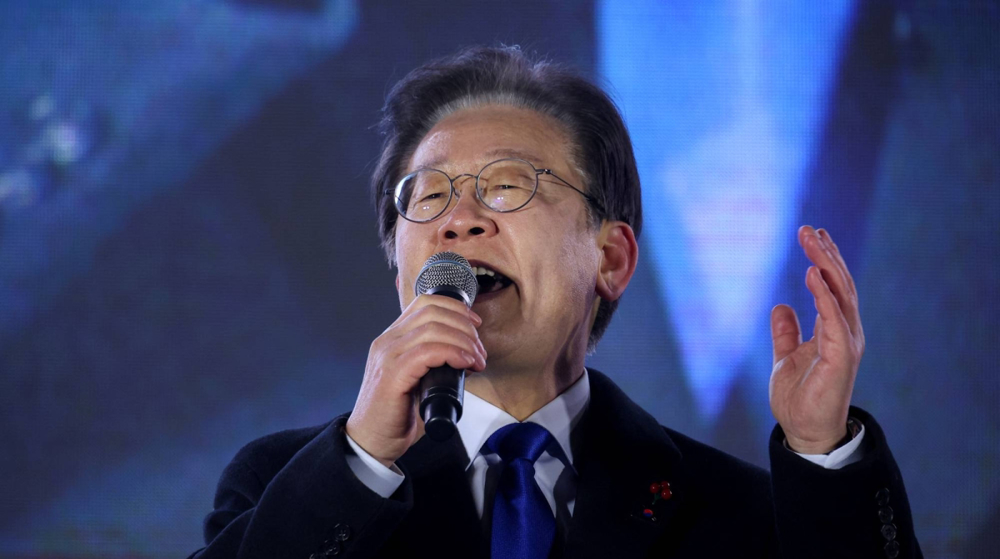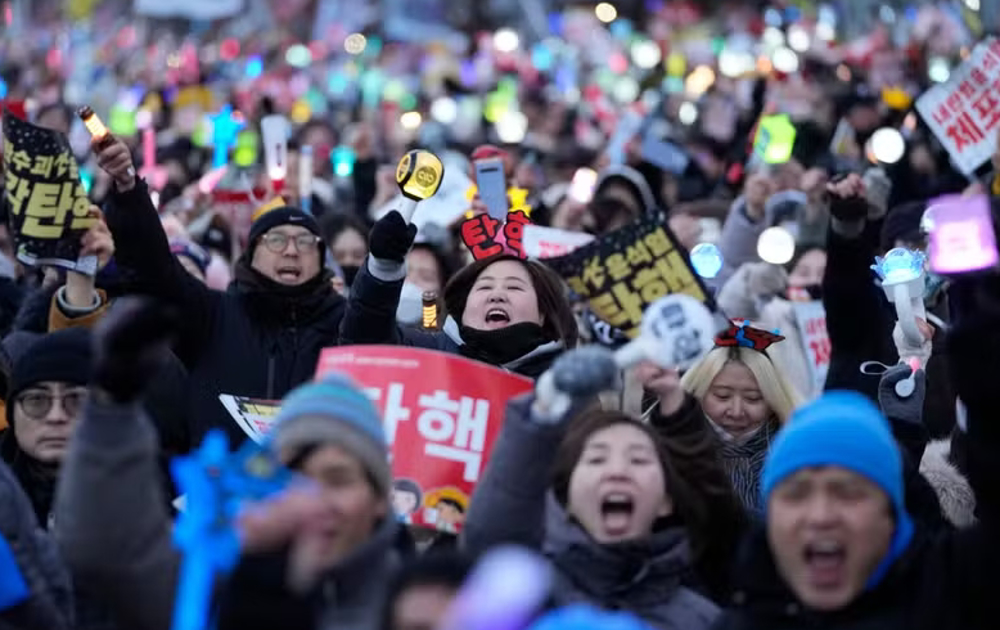North Korea ‘may test hydrogen bomb in Pacific’ in response to Trump's threat
North Korea’s foreign minister says Pyongyang is considering a powerful nuclear weapon test in the Pacific Ocean in response to US President Donald Trump’s recent threat against the North.
Foreign Minister Ri Yong-ho, who is due to address the United Nations General Assembly (UNGA) on the weekend, told reporters in New York that the ultimate decision for the hydrogen bomb test rested with leader Kim Jong-un.
“It could be the most powerful detonation of an H-bomb in the Pacific. We have no idea about what actions could be taken as it will be ordered by leader Kim Jong-un,” Ri said.
If that happens, it will be the first time Pyongyang tests a nuclear weapon outside its borders.
In his first speech at the UNGA, Trump threatened to “totally destroy” North Korea if necessary.
“The United States has great strength and patience, but if it is forced to defend itself or its allies, we will have no choice but to totally destroy North Korea,” he said.
Earlier this month, Pyongyang tested a powerful hydrogen bomb at its Punggye-ri nuclear test site in the northeast of the country.
Japan, which lies between North Korea and the Pacific Ocean, reacted to Ri’s remarks about a potential hydrogen bomb test outside the North’s territory, with Japanese Defense Minister Itsunori Onodera describing the comment as “utterly unacceptable.”

The Japanese minister said such a test could be conducted with a medium-range or intercontinental ballistic missile.
“We cannot deny the possibility it (the missile) may fly over our country,” Onodera said.
North Korea has twice flown missiles over Japan. Because of constitutional restrictions, Japan cannot shoot down missiles that fly through its airspace but do not directly target it, and has only been able to heat up rhetoric against North Korea.
The remarks by the North’s foreign minister came shortly after Kim said, in a first-person statement, that Trump would “pay dearly” for his threat at the UNGA.
Kim was quoted by the official Korean Central News Agency as saying that he “will consider with seriousness exercising of a corresponding, highest level of hard-line countermeasure in history.”
Japan’s Chief Cabinet Secretary Yoshihide Suga reacted to Kim’s statement by saying that North Korea’s behavior was “absolutely unacceptable.”
China, Russia urge restraint
Later on Friday, both China and Russia warned about the escalating tensions in the Korean Peninsula, urging restraint from all relevant parties engaged in the tensions.
“The situation on the Korean Peninsula now is complicated and sensitive,” said Chinese Foreign Ministry spokesman Lu Kang.
He called on all relevant parties to “exercise restraint instead of provoking each other.”
“We believe that only if relevant parties meet each other halfway can they really solve the Korean Peninsula issue and truly realize peace and stability on the Korean Peninsula,” he added.
Beijing, North Korea’s main ally and a principal trading partner to Pyongyang, has repeatedly said the issue should only be resolved through peaceful and diplomatic means. But it has agreed to sanctions on Pyongyang.
Meanwhile, Kremlin spokesman Dmitry Peskov also touched on the issue on Friday, saying Moscow was “deeply concerned by an escalation of tensions on the Korean Peninsula related to an exchange of rather rude statements replete with threats.”
“Moscow still calls on all interested parties to display restraint so as not to provoke this escalation even further,” he said.
‘Ghost town’: 70% of Jabalia buildings destroyed by Israel
Mother’s Day: Sareh Javanmardi’s inspiring journey as Paralympic champion and mother
Russia downs over 40 Ukrainian drones as Putin vows 'destruction' on Kiev
VIDEO | Yemen: A bone in Israeli neck
D-8’s role in Iran’s economy after Cairo summit
China slams US as ‘war-addicted’ threat to global security
China ‘firmly opposes’ US military aid to Taiwan
VIDEO | Press TV's News Headlines















 This makes it easy to access the Press TV website
This makes it easy to access the Press TV website